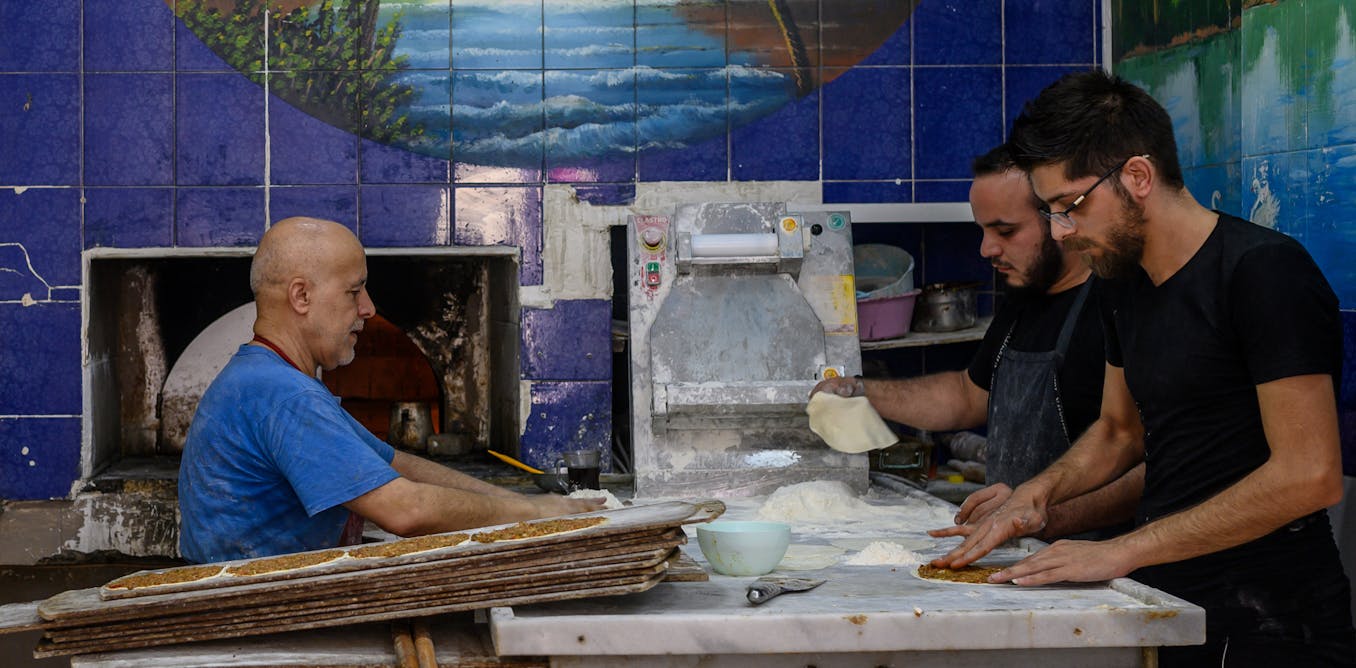Science
Syrian Migrants Thrive as Entrepreneurs in Turkey Against Odds

The plight of Syrian forced migrants in Turkey illustrates resilience and determination as they navigate the challenges of starting businesses in a foreign land. According to the UN Refugee Agency, by the end of 2024, approximately 42.7 million individuals worldwide had been forcibly displaced due to various forms of persecution and conflict. Among these, many Syrian migrants have established over 14,000 formal businesses in Turkey since the conflict began in 2011.
These entrepreneurs have opened an array of small enterprises, including restaurants, grocery stores, and service providers, aiming to rebuild their lives while contributing to the local economy. Despite significant hurdles, including language barriers, discrimination, and legal uncertainties, some have found pathways to success.
Key Factors Behind Entrepreneurial Success
Research conducted on 170 Syrian forced migrant entrepreneurs in Turkey reveals that success does not solely depend on business acumen or capital. The sense of belonging to the host society—termed “host country identity”—plays a crucial role. Those who reported feeling connected to Turkey’s people and institutions tended to adapt their services to local preferences, seek out opportunities, and forge lasting community relationships.
The study found that a positive host country identity correlates with both financial and customer performance, indicating that businesses owned by migrants who feel integrated within the host community often achieve better outcomes than their competitors.
Language proficiency emerges as a critical component of this identity. Entrepreneurs who feel confident in their ability to communicate in Turkish are more likely to connect with local customers and markets. Conversely, experiences of discrimination, such as being treated unfairly by landlords or customers, can erode this sense of belonging and hinder business success.
The Impact of Legal Status
Legal protection is another significant factor influencing the success of these businesses. In Turkey, Syrian migrants are granted “temporary protection” status, which affects their ability to establish formal enterprises. The timing of this status is critical; those who receive it promptly upon arrival tend to experience less discrimination and feel more secure in their environment.
Delays in obtaining legal status can exacerbate negative experiences and diminish feelings of connectedness to the host country. Even if individuals eventually secure legal status, the detrimental impact on their sense of belonging may have already taken root. This delay creates what researchers describe as an “invisible disadvantage,” complicating the integration process for many migrants.
The Broader Social Justice Implications
The success of forced migrant entrepreneurs has far-reaching implications. When these individuals thrive, they not only improve their economic circumstances but also create jobs, contribute to local tax revenues, and enrich their communities with new ideas and cultural diversity. Conversely, when barriers such as language difficulties, discrimination, or slow legal processes impede their progress, the entire community loses out on their potential contributions.
This situation reflects a broader social justice issue. Forced migrants often do not choose their circumstances and may have lost everything. Yet, many strive to integrate and contribute meaningfully to their new homes. Addressing the barriers they face is essential for fostering inclusive societies.
The findings from this research suggest actionable steps for policymakers and civil society to enhance the integration of forced migrants. First, ensuring timely legal protection can provide stability, allowing migrants to plan their futures with confidence. Second, investing in language programs can equip migrants with essential skills for better engagement within their communities. Lastly, combating discrimination through public education can change negative perceptions and promote inclusivity.
One successful model is the Fast Track initiative in Sweden, which focuses on language learning, credential recognition, and workplace integration. Reports indicate that this initiative led to the establishment of 83 new businesses among newly arrived entrepreneurs, demonstrating the effectiveness of targeted support.
As global conflicts and climate change continue to displace populations, countries must extend beyond short-term aid to offer pathways for belonging. Recognizing forced migrant entrepreneurs as valuable contributors rather than problems to be solved can lead to enhanced economic growth and community development. The journey of Syrian entrepreneurs in Turkey serves as a testament to the potential that lies in embracing diversity and fostering inclusive environments.
-

 Top Stories2 months ago
Top Stories2 months agoTributes Surge for 9-Year-Old Leon Briody After Cancer Battle
-

 Entertainment3 months ago
Entertainment3 months agoAimee Osbourne Joins Family for Emotional Tribute to Ozzy
-

 Politics3 months ago
Politics3 months agoDanny Healy-Rae Considers Complaint After Altercation with Garda
-

 Top Stories3 months ago
Top Stories3 months agoIreland Enjoys Summer Heat as Hurricane Erin Approaches Atlantic
-

 World4 months ago
World4 months agoHawaii Commemorates 80 Years Since Hiroshima Bombing with Ceremony
-

 Top Stories2 months ago
Top Stories2 months agoNewcastle West Woman Patricia Foley Found Safe After Urgent Search
-

 Top Stories4 months ago
Top Stories4 months agoFianna Fáil TDs Urgently Consider Maire Geoghegan-Quinn for Presidency
-

 World4 months ago
World4 months agoGaza Aid Distribution Tragedy: 20 Killed Amid Ongoing Violence
-

 World4 months ago
World4 months agoCouple Convicted of Murdering Two-Year-Old Grandson in Wales
-

 World4 months ago
World4 months agoAristocrat Constance Marten and Partner Convicted of Infant Murder
-

 Top Stories3 months ago
Top Stories3 months agoClimbing Errigal: A Must-Do Summer Adventure in Donegal
-

 Top Stories3 months ago
Top Stories3 months agoHike Donegal’s Errigal Mountain NOW for Unforgettable Summer Views









